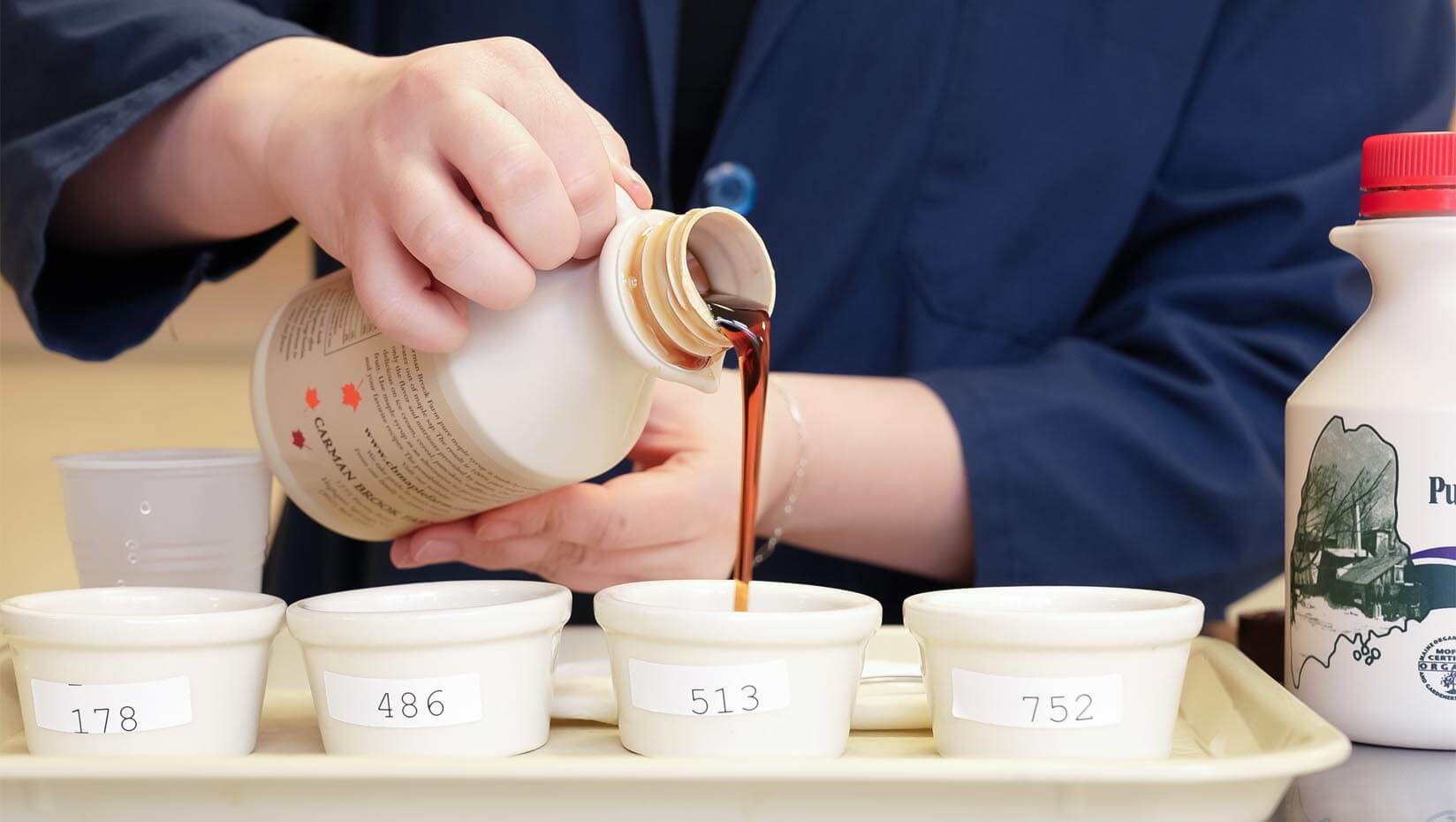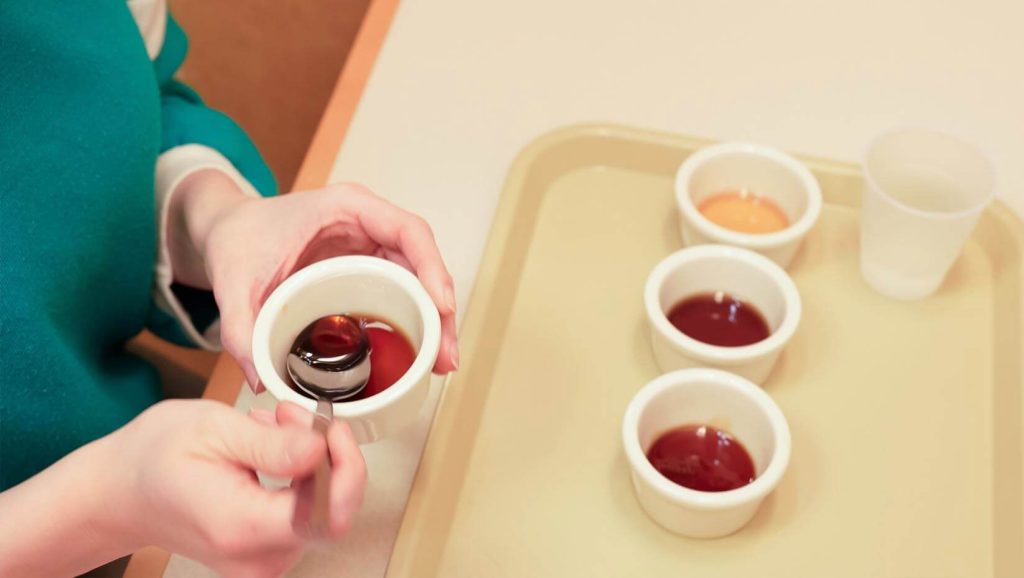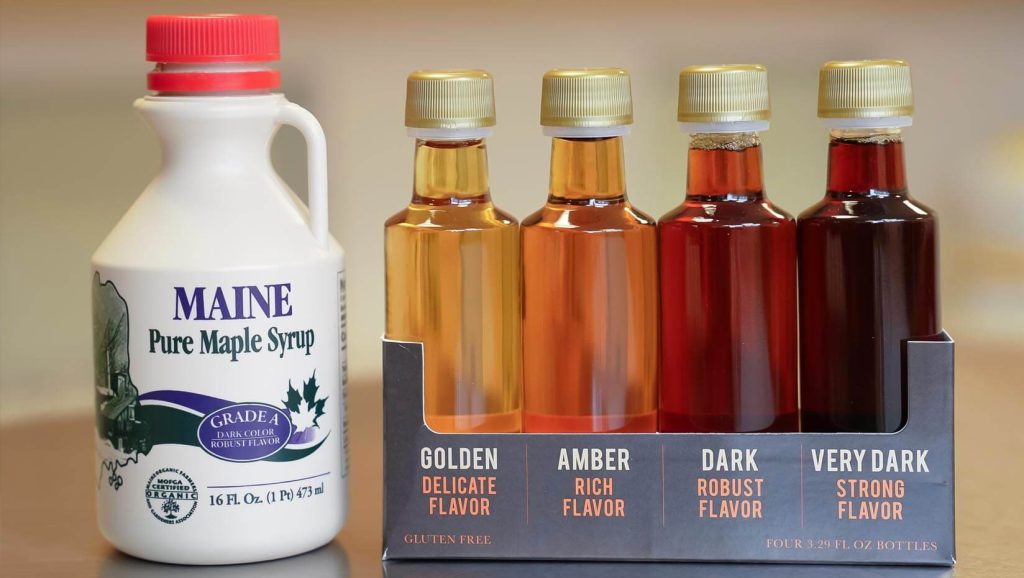
Through sweet sampling across states, UMaine-led research aims to help maple industry tap new markets
Mainers know their maple syrup — the state is the third-largest producer of it nationwide. The same can’t be said in many other places. In parts of the southern and western U.S., many consumers don’t realize that maple syrup comes in different flavors based on when it was harvested or how long it ages, or that it can enhance tea, bacon, cocktails or cornbread.
Mary Ellen Camire, UMaine professor of food science and human nutrition, believes the maple industry can tap into new domestic markets through broader consumer outreach and education. To support producers nationwide, Camire and Qiujie “Angie” Zheng, UMaine associate professor of business analytics, and their students will survey consumers across the U.S. on their interest in maple syrup, collecting data and feedback one spoonful at a time.
For their study, researchers plan to have consumers in Maine, Florida, Illinois, Arkansas and California sample four types of maple syrup — golden, amber, dark and very dark — and describe their preferences. Camire says her team also will inform study participants of the many ways in which maple syrup can complement or improve upon other goods based on those preferences and collect feedback. For example, if one participant enjoys the darker, richer-flavored syrup, researchers will describe how it compliments bacon, while those who like lighter, sweeter syrup may enjoy using it in tea.
Preliminary testing will be scheduled in late April at the Sensory Evaluation Center in Hitchner Hall. Anyone over the age of 18 interested in participating can ask to be notified about the test by emailing sensory.evaluation@maine.edu.

In addition to conducting sensory evaluations, Camire and Zheng also will send out a survey to maple producers and processors. The team also is collaborating with Atlantic Corporation, a research and development management firm in Waterville. Using the data they collect from consumers, producers and processors, the company will develop an interactive visualization tool to assist maple producers with creating marketing strategies based on consumer preferences, Camire said.
“Our big goal for the project is educating the industry on what consumers want and educating consumers on the different kinds of maple syrup,” she said. “I also hope we might spur entrepreneurs to consider maple as a feature ingredient for future products like liqueurs or sodas.”
The project is supported by a $452,752 grant from the U.S. Department of Agriculture’s Agricultural Marketing Services. The project was one of 13 recently funded by the agency’s Acer Access and Development Program.
Maple producers are facing more challenges than ever as they experience threats from climate change and greater competition for land and market share. With over 9,400 maple syrup operations nationwide that could benefit, Camire says her team’s work has become “a priority for the USDA’s maple program.”
“Unlike a lot of commodities, a lot of maple syrup producers are small businesses,” Camire said. “We’re helping all maple producers identify new markets.”
In addition to supporting the industry, the project will also provide undergraduate and graduate students with hands-on learning experiences in market research and the sensory evaluation of foods. Their work will teach them camaraderie, patience and how to work well under pressure.
“There’s an intensity to it. You have to keep a cool head and make sure you’re delivering the right tray with the right samples, which is something hands-on learning can allow. You have to do everything correctly. All the cups and labels. Everything needs to be at the right temperature and delivered in a logical order,” Camire said. “When you turn the heat up, are they up to the task? Everyone makes mistakes, but you try to train them to think ahead to minimize mistakes.”

The maple industry is not the first Camire and Zheng have supported through sensory-based market research in collaboration with Atlantic Corporation. The researchers and company previously conducted studies and surveys for the dairy, seaweed and aquaculture industries.
“Our goal is to help Maine businesses grow. With Atlantic Corp.’s business expertise and our research expertise, we’ve had several successful projects,” she said. “Maple is a special project, and I hope this project will bring it to the forefront for a lot of consumers and businesses.”
Contact: Marcus Wolf, 207.581.3721; marcus.wolf@maine.edu
